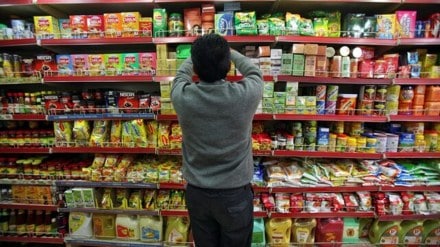Fast-moving consumer goods (FMCG) companies are increasingly finding it difficult to sustain new launches as growing competition takes the sheen off new products, a study by Numerator (formerly Kantar) says.
Just 4% of new launches in FMCG achieve 1% penetration, the market researcher says. This is despite the number of new launches increasing 1.8 times in the 12 months ending May 2025 versus the previous year. Categories such as beverages, salty snacks and chocolates, for instance, have seen new launches grow ahead of the market, at two times in the period under review versus the year ago, but the success rate hasn’t changed significantly.
It has fallen by 2% when compared to the pre-Covid-19 period. In 2019, almost 6% of new launches achieved 1% penetration in the launch year, the research agency said, declining in the post-Covid period as small, regional and D2C brands increasingly compete with larger players for the consumer’s share of wallet.
Fusion and premiumisation trends
But as challenges grow for larger players, Numerator says that companies can take cues from successful launches. “Fusion, for instance, is the new trend to connect with consumers. While categories such as chocolates have pushed gifting, premium packs and rich flavours and unique products in general tend to drive consumer appeal,” says K Ramakrishnan, MD, South Asia, Worldpanel by Numerator.
Also, the majority of incremental volumes in categories such as chocolates, salty snacks and soft drinks have been driven by new launches, Ramakrishnan says, pointing to what success can bring to the table if companies tap into relevant trends.
ITC and Prataap Snacks, for example, recently launched Korean chips to leverage the growing interest of Indians in K-products. Pringles, an American wafer brand, has a new fusion and desi masala range to tap into local tastes, industry experts and executives said. While among unique products Unibic, best-known for its cookies, has a new range of potato snacks called snappers for those seeking crispy bites. Mondelez’s Oreo, best-known for its cream biscuit range, on the other hand, has a new wafer biscuit. While Saffola from Marico has a new munchies range for those snacking in between meals.
Innovation beyond foods
Innovation rate, experts say, is not restricted to food products alone, but beverage brands too have upped the ante, as competition from soft drinks to juices, energy drinks to functional and milk-based beverages grows across the board.
Complan, acquired by Zydus Wellness in 2019, for instance, is expanding the brand beyond kids, tapping into digital commerce and leveraging scientific research to back its premium positioning. Horlicks from Hindustan Unilever has taken its range beyond kids with its plus range, tapping women, mothers and men among other segments.
In carbonated beverages, companies such as Reliance Consumer, which relaunched Campa in 2023, is already available in 15-20 variants, spanning cola to nectar, glucose-based, energy and sports drinks. Company officials say that they will continue to tap emerging areas such as regional flavours.
